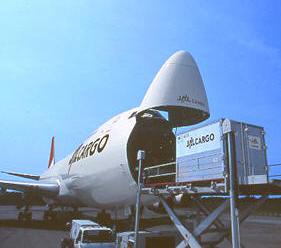|
|||||||||||
|
|
|
|||
|
By |
||||
 |
November 9, 2010 - The Air Line Pilots Association,
Int’l (ALPA), renewed its long-standing call for an air
cargo screening policy that is risk-based, rather than a
“one-size-fits-all” approach, and for fundamental
security enhancements that will bring all-cargo flight
operations up to passenger airline standards.
“The events of late last week demonstrated what ALPA has
warned government and industry about for many years: air
cargo operations are vulnerable and the threat is very
real,” said Capt. John Prater, ALPA’s president.
“We know that risk-based screening and other security
enhancements are urgently needed to close existing gaps
that put at risk passengers, cargo, and pilots, as well
as persons on the ground, if a terrorist were to be
successful in bringing down an aircraft over a major
metropolitan area.” |
|||
|
|
||||
|
Cargo
carried in domestic operations by passenger airlines is
thoroughly screened. Security measures used by all-cargo
airlines, however, are vastly different from those used by
passenger carriers and are much less reliable. All-cargo
operations must use a threat-based approach to identify
trustworthy shippers and freight and subject them to one level
of screening, while those individuals, organizations, and
materials about which little is known would be subject to a
greater level of scrutiny.
Doing so
would allow cargo screeners to effectively focus resources on
shippers and freight that pose the greatest risk, while cargo
from trustworthy shippers and forwarders would pass through the
screening system more quickly and cost-effectively. “A ‘one-size-fits-all’ approach that demands the same type of screening for every piece of cargo will be costly, threaten commerce, and fail to enhance aviation security,” said Capt. Bill McReynolds, a FedEx Express pilot who is chairman of ALPA’s President’s Committee for Cargo. “A screening strategy that is tailored to the threat, and is commerce-friendly and cost-effective will focus resources where they are needed to secure air transportation, while keeping freight moving.” |
||||


